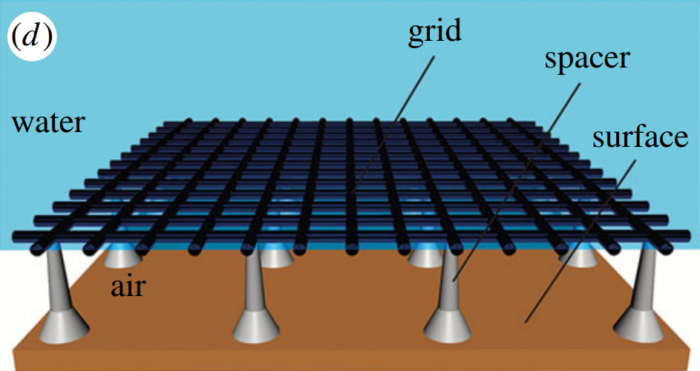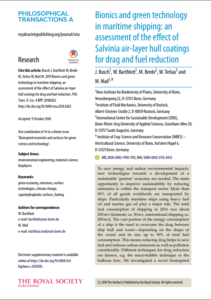Germany’s University of Bonn partnered with St Augustin and Rostock University to conduct a study revealing that the use of high-tech air-trapping materials on ship hulls could contribute to decrease global CO2 emissions by 1%. According to the study, oil tankers could save up more than 20% of fuel due to decreased drag resulting from the use of such materials.
Mainly, using high-tech surfaces can double antifouling effects, which also involves the reduced growth of organisms on the hull.
As stated in the research, high-tech coatings offer a solution to the problem, including the micro-bubbles technology, which although reduces drag it also requires high amount of energy to produce bubbles.
Consequently, the amount of energy needed to produce bubbles is much higher than total saving effects.
Yet, the high-tech coatings, revealed in the study, can hold air for long periods and even weeks, reducing emissions.
The layers of the coating are based on samples by natural sources such as the floating fern Salvinia molesta.

Scientists support that the technology has the possibility to save at least 5% to 20% fuel in the medium term.
According to University of Bonn Nees Institute for Biodiversity of Plants representative and one of the authors of the study Dr Matthias Mail
Around ten years ago, we were already able to demonstrate on a prototype that, in principle, it is possible to reduce drag by up to 10%. Our partners at Rostock University later achieved a 30% reduction with another material developed by us.
Yet, the technology developed by the University of Bonn is not mature enough for practical use.
For more information on the research, click the PDF herebelow:































































